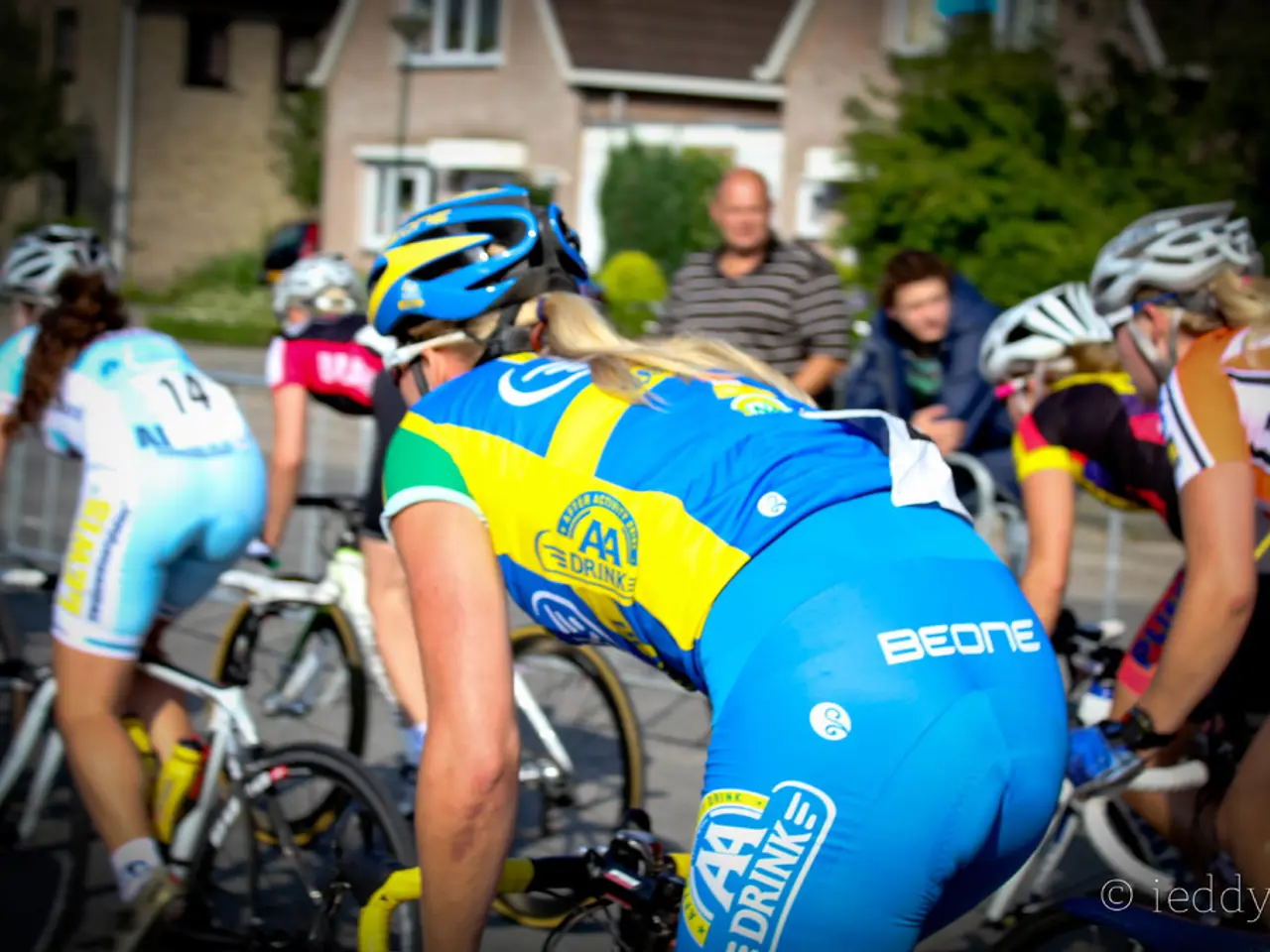Women's Riders' Union Demands Modification in the Existing System to Prioritize Female Health following discussions on wellbeing during Tour de France Femmes
In the world of women's professional cycling, the Cyclists' Alliance (TCA) is leading the charge for better health and wellbeing standards. The union, representing female riders, has proposed mandatory yearly RED-S (Relative Energy Deficiency in Sport) screening and bone mineral density testing to the Union Cycliste Internationale (UCI) [2][4].
The proposed screening protocols aim to identify and manage energy deficiency issues that negatively impact athlete health and performance. These issues can arise from energy intake not meeting the demands of intense training and competition, leading to health problems such as weakened bones, menstrual irregularities, impaired immunity, and reduced endurance [5]. The screening process involves a combination of medical questionnaires, physical measurements, and specialist assessments, recognising that no single test can confirm RED-S [5].
The TCA's advocacy extends beyond mandatory health screenings. They are actively promoting education and awareness about RED-S and female athlete health risks. In 2025, they formed a working group of riders and experts focusing on nutrition, energy availability, and RED-S [1][4][5]. This autumn, they plan to launch an education campaign aimed at riders, team staff, and other stakeholders.
The TCA emphasises the importance of creating a sustainable, fulfilling cycling career for women where athletes can perform strongly and healthily. They aim to address concerns about the disproportionate scrutiny female riders face regarding body image and weight in the sport [1][2][4]. Their advocacy combines calls for mandatory health screening with cultural change to prioritise ethical and evidence-based approaches to athlete wellbeing [4][5].
Recently, there has been media coverage about Pauline Ferrand-Prévot's weight loss. However, the TCA believes that the current system is not set up to protect female health and is advocating for better standards. They believe that an organisation needs to take action against issues related to health and wellbeing in cycling [1][4].
Meanwhile, concerns about the state of cycling regarding issues of low weight have been expressed by riders like Cédric Kerbaol. Kim Cadzow, a professional cyclist, has suggested seeking advice from registered dietitians instead of peers. Cadzow also posted on Instagram stating that she believes cycling is riddled with eating disorders [1].
Demi Vollering, another professional cyclist, has posted on Instagram stating that she prioritises her health in her career. The TCA offers its support and expertise in implementing a protocol for RED-S prevention and is launching a campaign of education and awareness for health and wellbeing this autumn [1].
The TCA's comprehensive approach reflects an effort to systematically address health risks unique to female professional cyclists and foster a healthier and more equitable sporting environment. The UCI has yet to adopt these measures, but the TCA continues to press for their implementation.
The Cyclists' Alliance (TCA) is not only advocating for mandatory health screenings to identify and manage energy deficiency issues in women's professional cycling, but also promoting education and awareness about mental health, women's health, and health-and-wellness, as evidenced by their formation of a working group on nutrition, energy availability, and RED-S in 2025 [1][4][5]. The TCA's education campaign this autumn aims to address concerns about the disproportionate scrutiny female riders face regarding body image and weight in the sport, while also prioritizing sustainable, fulfilling careers where athletes can perform strongly and healthily, with a focus on mental health and wellbeing.




